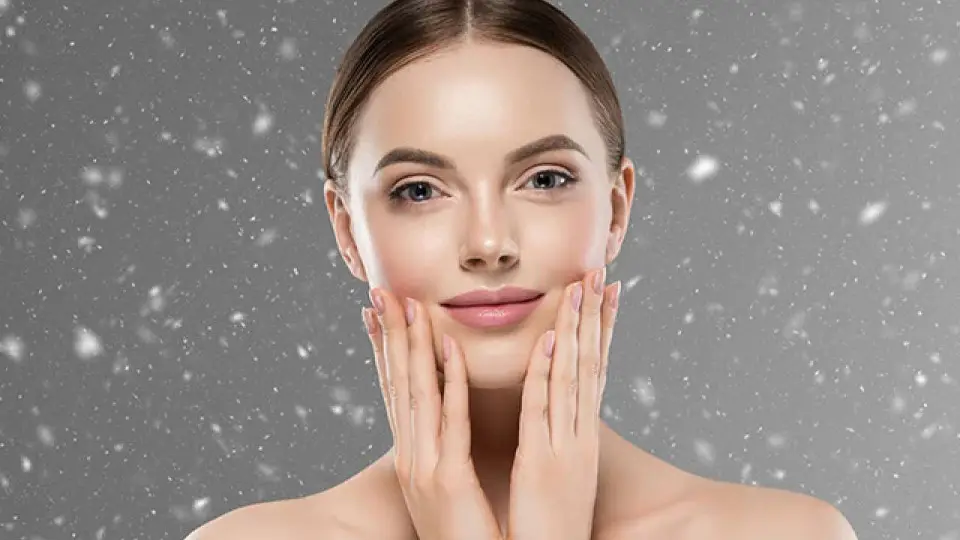
(Credit: OpenAI)
Cold winter air strips skin of natural moisture and leads to tightness. Applying a thick oil-based moisturiser helps create a protective barrier over the surface. Experts recommend using creams immediately after bathing to trap hydration. Consistent use prevents flaking and reduces itching. Always reapply at night for deeper nourishment. Moisturising is considered the foundation of winter skincare and should never be skipped.
Indoor heating dries room air, causing hidden moisture loss from the skin. Installing a humidifier restores humidity balance and helps your skin retain softness. It can also reduce winter cough and fatigue. Better air quality contributes to improved sleep and respiratory comfort. A humidifier is ideal especially for elderly and children. It quietly improves skin texture without any topical application.
Lengthy hot showers remove natural oils required to maintain elasticity. Dermatologists suggest switching to lukewarm water and limiting bath duration to fifteen minutes. This prevents rapid dehydration and irritation. Use mild cleansers instead of harsh soaps. Pat skin dry gently after bathing rather than rubbing vigorously. Proper water temperature plays a significant role in winter skincare preservation.
Dead skin cells build up faster during low humidity conditions. Gentle exfoliation once a week helps reveal fresh layers beneath. Prefer scrubs containing charcoal, coffee or natural extracts. Avoid over-exfoliation as it may worsen dryness. Smooth skin allows moisturisers to absorb better and act efficiently. Regular exfoliation leads to improved blood circulation and glow.
Winter sunlight feels soft but still carries harmful ultraviolet rays. Even short outdoor exposure may cause tanning or premature ageing. Apply SPF30 or higher before stepping out regardless of cloud cover. Cover arms, neck and ears using warm but protective clothing. Use sunglasses to shield eye area. Sun protection is equally required during winter afternoons.
People often consume less water in winter due to reduced thirst. Dehydration silently affects skin translucency and vitality. Drink at least two litres daily to maintain fluid balance. Warm water is also acceptable for better comfort. Hydration helps prevent cracks at elbows, knees and lips. Consistent intake supports internal repair functions naturally.
Hydrating masks provide instant moisture infusion when cold air causes inflammation. Look for ingredients like aloe vera, honey and shea butter. They soothe irritated patches and improve texture quickly. Apply once or twice weekly depending on dryness level. Some masks also assist in controlling acne breakouts triggered by rough weather. Face masks complement routine moisturisers for long lasting results.
Lip skin is thinner and more vulnerable than other areas. Cold wind leads to painful cracking and bleeding. Use balm with SPF and avoid frequent licking. Light lip scrubs may remove minor build-up but should be followed immediately by nourishment. Choose petrolatum or shea based products for full coverage. Keeping lips hydrated maintains a fresh appearance.
Balanced diet rich in fruits, vegetables and protein enhances skin resilience. Include omega-3 fatty acids from flaxseeds and walnuts. Reduce intake of refined sugar and deep fried foods to prevent inflammation. Drink plenty of water alongside natural soups. Consult doctor before taking vitamin or mineral supplements. Good nutrition contributes to internal healing and prevents dull patches.
Sleep allows body to repair damaged cells and reduce stress. Lack of rest increases dryness and promotes early ageing signs. Maintain seven to nine hours of uninterrupted sleep nightly. Calm mind leads to better circulatory functions. Create a fixed bedtime routine for stability. Adequate rest completes the winter skincare cycle and supports radiance naturally.













Copyright © 2025 Top Indian News
